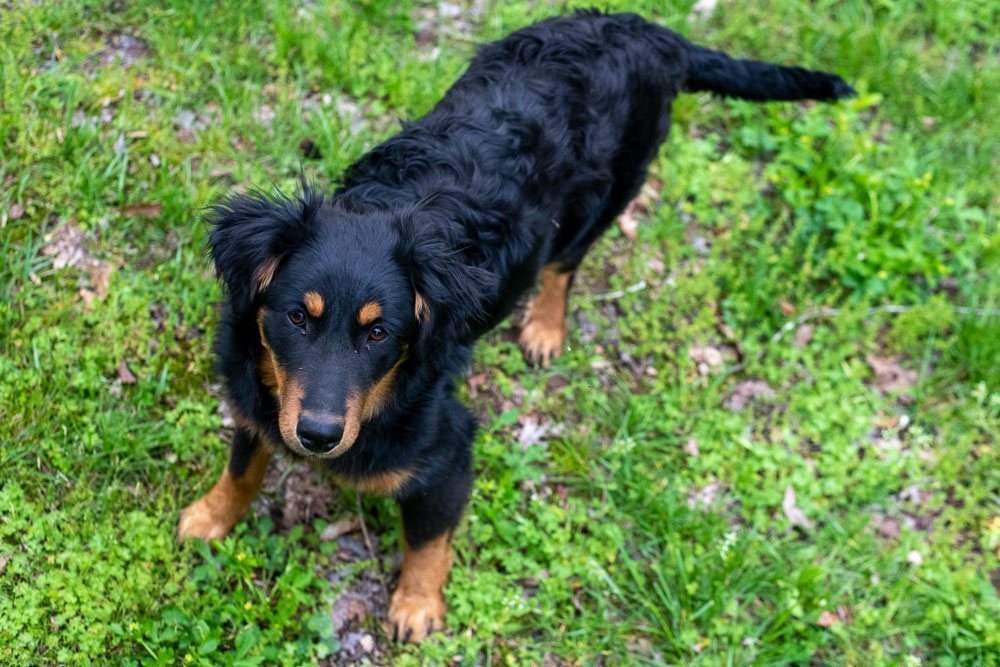There are a lot rural families here in the Southeast who breed unregistered black and tans. Through my ads in farm magazines, I personally know and have spoken with 8-10 such breeders. Every once in awhile, a club breeder will “discover” an unregistered line of dogs from here. Kind of the way Columbus “discovered” America even though there had been indigenous peoples here for millennia. Adding insult to injury, the club breeder will then royally announce the importance of hips testing, DNA testing and stepping the dogs into the club’s registry. As if that will make them legitimate. If you’ve read my essay[1]A History of the Old-fashioned Black and Tan English Shepherd about the history of the old-fashioned black and tan English shepherd, then you know that rural families in the Southeast have been breeding these dogs for more than a century. By John Blankenship’s account, that number may be closer to 180 years. The next time you see a club breeder “discover” what has been here since long before the club’s founders’ grand parents were alive, consider how arrogant (and offensive to some) it is to say a European discovered America. As if a continent of people didn’t exist before a European “found” it. At the end of the day, one has a choice. One can either educate oneself about the use and appreciation of a type of dog that does not belong to one’s own culture. Or one can appropriate, assimilate and call that type of dog one’s own without regard to the culture it belongs to. The latter choice is Columbian. Like a young child catching butterflies; the child wants to possess the beautiful insect. But in her immaturity, the child doesn’t consider that the oil from her fingers will kill it.
Photo is Natchez Trace Lovely Rogue aka Sally. She is by Sallee’s Rustie Jr. out of Sherling’s Jill. Her namesake is Walker’s Sally, her grandmother.
References

